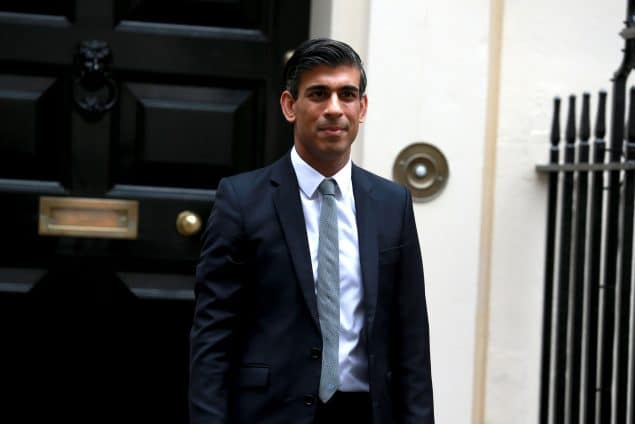Home » UK Business News » Rishi Sunak to meet supermarket bosses and farmers as food inflation hits record high
Rishi Sunak to meet supermarket bosses and farmers as food inflation hits record high
https://www.whatjobs.com/news/united-kingdom/uk-business-news/rishi-sunak-to-meet-supermarket-bosses-and-farmers-as-food-inflation-hits-record-high

By Nagasunder in UK Business News, posted May 5, 2023

Prime Minister Rishi Sunak is set to meet with farmers and supermarket bosses to discuss the demands of the National Farmers' Union (NFU) and boost home-grown food production.
According to The Grocer, the meeting will focus on the relationship between farmers and the UK's leading supermarkets in an effort to better support farmers and increase the country's food security.
Originally scheduled for later this year, the meeting was moved forward due to the growing levels of inflation.
Read More: Mowgli Street Food creates hundreds of new jobs after massive surge in revenue
Last month, food inflation hit a new record high as the average price of food and non-alcoholic beverages rose by the largest margin in over 45 years.
The latest BRC-NielsenIQ shop price index showed food prices rose by 15.7 percent, and fresh food prices increased by 17.8 percent year-on-year.
The NFU is calling for the government to support home-grown food production and reduce reliance on imported food, which has become more expensive due to supply chain disruptions and currency fluctuations.
Read More: Asda and EG group merger will ‘threaten food supply, fuel prices and jobs’
The union also wants the government to invest in the development of sustainable farming practices that can support the country's food security in the long term.
The meeting comes as the UK's agriculture industry faces a range of challenges, including Brexit-related uncertainty, labour shortages, and climate change.
The NFU has warned that without government support, the industry will struggle to meet the country's food needs and maintain its international competitiveness.
Need Career Advice? Get employment skills advice at all levels of your career
Retailers, meanwhile, are grappling with a range of supply chain issues that have contributed to rising food prices.
The pandemic has disrupted global trade, causing shortages of some goods and driving up the cost of others.
In addition, labour shortages and disruptions at ports have made it difficult to move goods around the world, leading to higher transportation costs.
Despite the recent spikes in food prices, there are some signs that they may be starting to ease. Retail experts predict that food prices will drop in the coming months as wholesalers cut their prices and other cost pressures begin to filter through.
However, it remains to be seen whether these declines will be enough to make a significant dent in the current inflationary trend.
Follow us on YouTube, Twitter, LinkedIn, and Facebook











